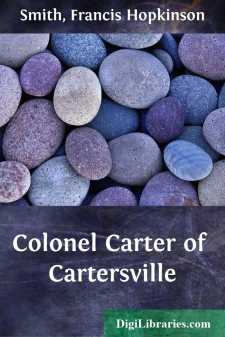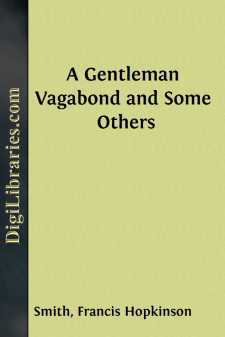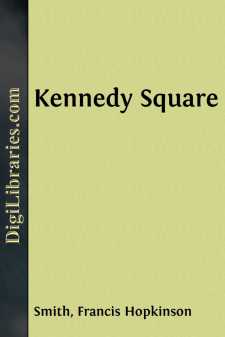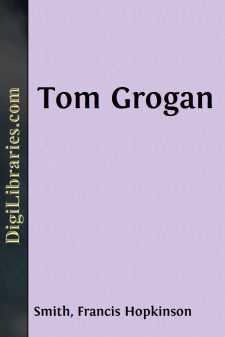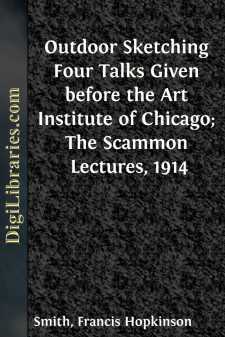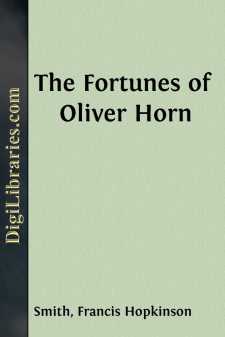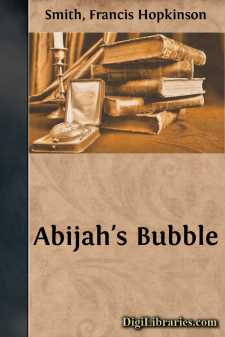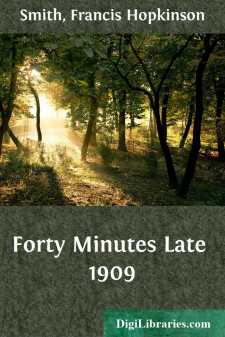Categories
- Antiques & Collectibles 13
- Architecture 36
- Art 48
- Bibles 22
- Biography & Autobiography 813
- Body, Mind & Spirit 142
- Business & Economics 28
- Children's Books 14
- Children's Fiction 11
- Computers 4
- Cooking 94
- Crafts & Hobbies 4
- Drama 346
- Education 46
- Family & Relationships 57
- Fiction 11829
- Games 19
- Gardening 17
- Health & Fitness 34
- History 1377
- House & Home 1
- Humor 147
- Juvenile Fiction 1873
- Juvenile Nonfiction 202
- Language Arts & Disciplines 88
- Law 16
- Literary Collections 686
- Literary Criticism 179
- Mathematics 13
- Medical 41
- Music 40
- Nature 179
- Non-Classifiable 1768
- Performing Arts 7
- Periodicals 1453
- Philosophy 64
- Photography 2
- Poetry 896
- Political Science 203
- Psychology 42
- Reference 154
- Religion 513
- Science 126
- Self-Help 84
- Social Science 81
- Sports & Recreation 34
- Study Aids 3
- Technology & Engineering 59
- Transportation 23
- Travel 463
- True Crime 29
Francis Hopkinson Smith
Francis Hopkinson Smith was an American author, artist, and engineer, born on October 23, 1838. He is best known for his engineering work on projects like the foundation of the Statue of Liberty and for his literary contributions, including novels like "Colonel Carter of Cartersville" and "Caleb West, Master Diver." Smith was also a talented painter and illustrator, frequently contributing to magazines and showcasing his artwork in various exhibitions.
Author's Books:
Sort by:
CHAPTER I The Colonel's House in Bedford Place The dinner was at the colonel's—an old-fashioned, partly furnished, two-story house nearly a century old which crouches down behind a larger and more modern dwelling fronting on Bedford Place within a stone's throw of the tall clock tower of Jefferson Market. The street entrance to this curious abode is marked by a swinging wooden gate...
more...
A KNIGHT OF THE LEGION OF HONOR It was in the smoking-room of a Cunarder two days out. The evening had been spent in telling stories, the fresh-air passengers crowding the doorways to listen, the habitual loungers and card-players abandoning their books and games. When my turn came,—mine was a story of Venice, a story of the old palace of the Barbarozzi,—I noticed in one corner of the room a man...
more...
CHAPTER I On the precise day on which this story opens—some sixty or more years ago, to be exact—a bullet-headed, merry-eyed, mahogany-colored young darky stood on the top step of an old-fashioned, high-stoop house, craning his head up and down and across Kennedy Square in the effort to get the first glimpse of his master, St. George Wilmot Temple, attorney and counsellor-at-law, who was expected...
more...
I. BABCOCK'S DISCOVERY Something worried Babcock. One could see that from the impatient gesture with which he turned away from the ferry window on learning he had half an hour to wait. He paced the slip with hands deep in his pockets, his head on his chest. Every now and then he stopped, snapped open his watch and shut it again quickly, as if to hurry the lagging minutes. For the first time in...
more...
COMPOSITION My chief reason for confining these four talks to the outdoor sketch is because I have been an outdoor painter since I was sixteen years of age; have never in my whole life painted what is known as a studio picture evolved from memory or from my inner consciousness, or from any one of my outdoor sketches. My pictures are begun and finished often at one sitting, never more than three...
more...
Within a day's journey of Kennedy Square lay another wide breathing-space, its winding paths worn smooth by countless hurrying feet. Over its flat monotony straggled a line of gnarled willows, marking the wanderings of some guileless brook long since swallowed up and lost in the mazes of the great city like many another young life fresh from green fields and sunny hill-sides. This desert of weeds...
more...
CHAPTER I Peter was still poring over his ledger one dark afternoon in December, his bald head glistening like a huge ostrich egg under the flare of the overhead gas jets, when Patrick, the night watchman, catching sight of my face peering through the outer grating, opened the door of the Bank. The sight so late in the day was an unusual one, for in all the years that I have called at the Bank—ten,...
more...
Ezekiel Todd, her dry, tight-fisted, lean father, had named her, bawling it out so loud that the more suitable, certainly the more euphonious, "Evangeline," proffered in a timid whisper by her faded and somewhat romantic mother, was completely smothered. "I baptize thee, Evang—" began the minister, when Ezekiel's voice rose clear: "Abijah, I tell ye,...
more...
This is Marny's story, not mine. He had a hammer in his hand at the time and a tack between his teeth. "Going to hang Fiddles right under the old fellow's head," he burst out. "That's where he belongs. I'd have given a ten-acre if he could have drawn a bead on that elk himself. Fiddles behind a .44 Winchester and that old buck browsing to windward"—and he nodded at...
more...
It began to snow half an hour after the train started—a fine-grained, slanting, determined snow that forced its way between the bellows of the vestibules, and deposited itself in mounds of powdered salt all over the platforms and steps. Even the porter had caught some puffs on his depot coat with the red cape, and so had the conductor, from the way he thrashed his cap on the back of the seat in front...
more...


